Exploring Mythology and Folklore in Adventure Game Storylines
11 December 2024
When was the last time you played an adventure game and felt that shiver of excitement as you uncovered a deep, ancient secret? Chances are, mythology and folklore had something to do with it. These elements have become staples in adventure games, and honestly, it’s not hard to see why. They bring a sense of wonder, mystery, and timelessness to the stories we play through.
But how do game developers weave these age-old stories into the fabric of modern gaming? And why are we so drawn to them? In this article, we’re going to dig deep into how adventure games use mythology and folklore to craft unforgettable experiences. So, grab your controller—or maybe just a cup of coffee—and let’s delve into this captivating topic. 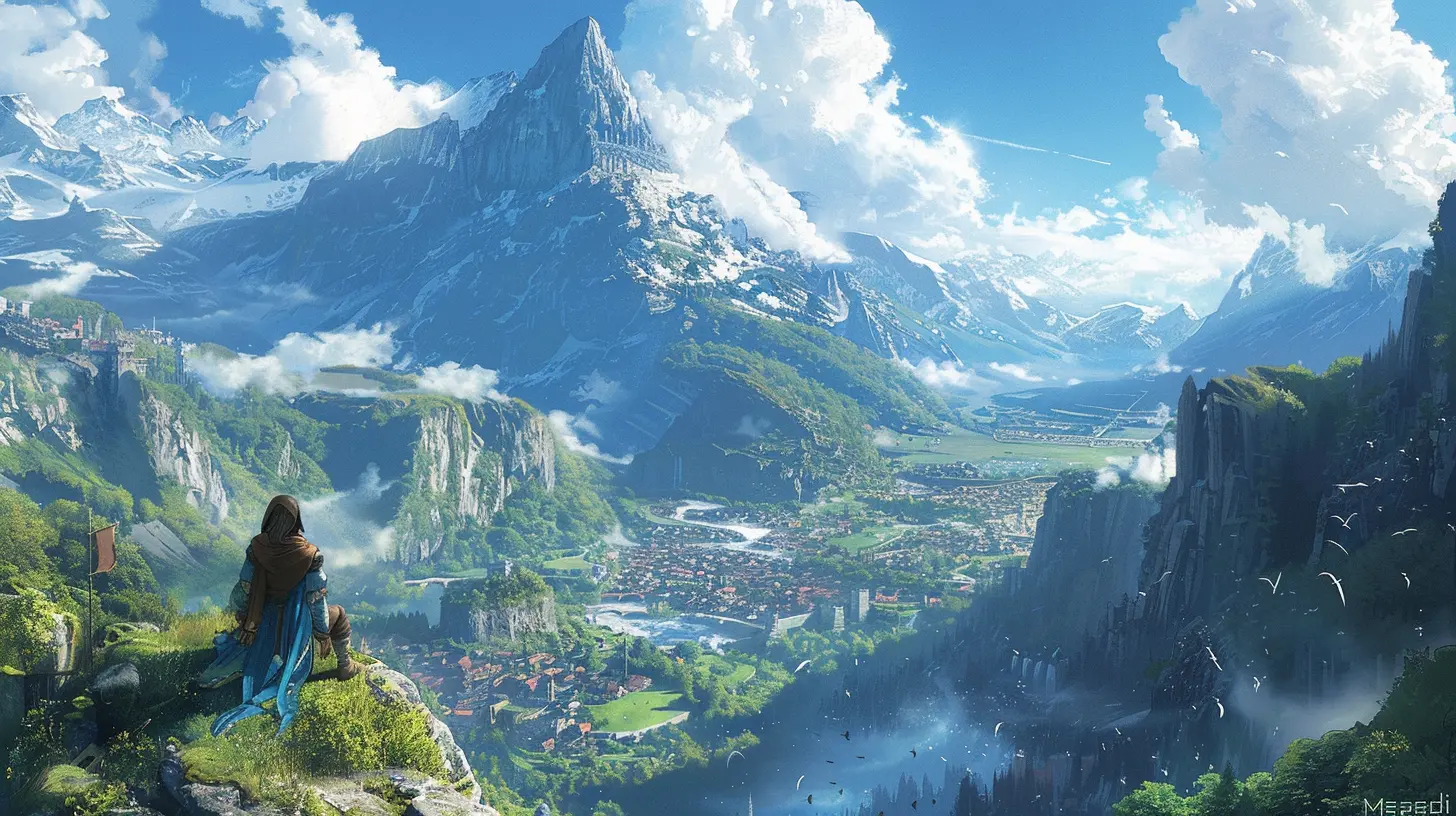
Why Mythology and Folklore?
Imagine having access to a treasure trove of timeless tales, epic heroes, and terrifying monsters. That’s essentially what mythology and folklore offer. These stories have been passed down for generations, often carrying profound lessons about humanity, morality, and the universe.But what makes them so perfect for adventure games? Well, they’re universal. Myths and legends resonate with everyone, no matter where they’re from. Whether it’s the Greek pantheon, Norse sagas, or Japanese yokai, these tales tap into our shared love for the mysterious and the larger-than-life.
And let’s not forget the built-in drama. Gods battling mortals, cursed objects that bring doom, forbidden love—it’s basically a script waiting to happen! Add some gameplay mechanics, puzzles, and exploration, and voila: you’ve got yourself a story that players won’t forget anytime soon. 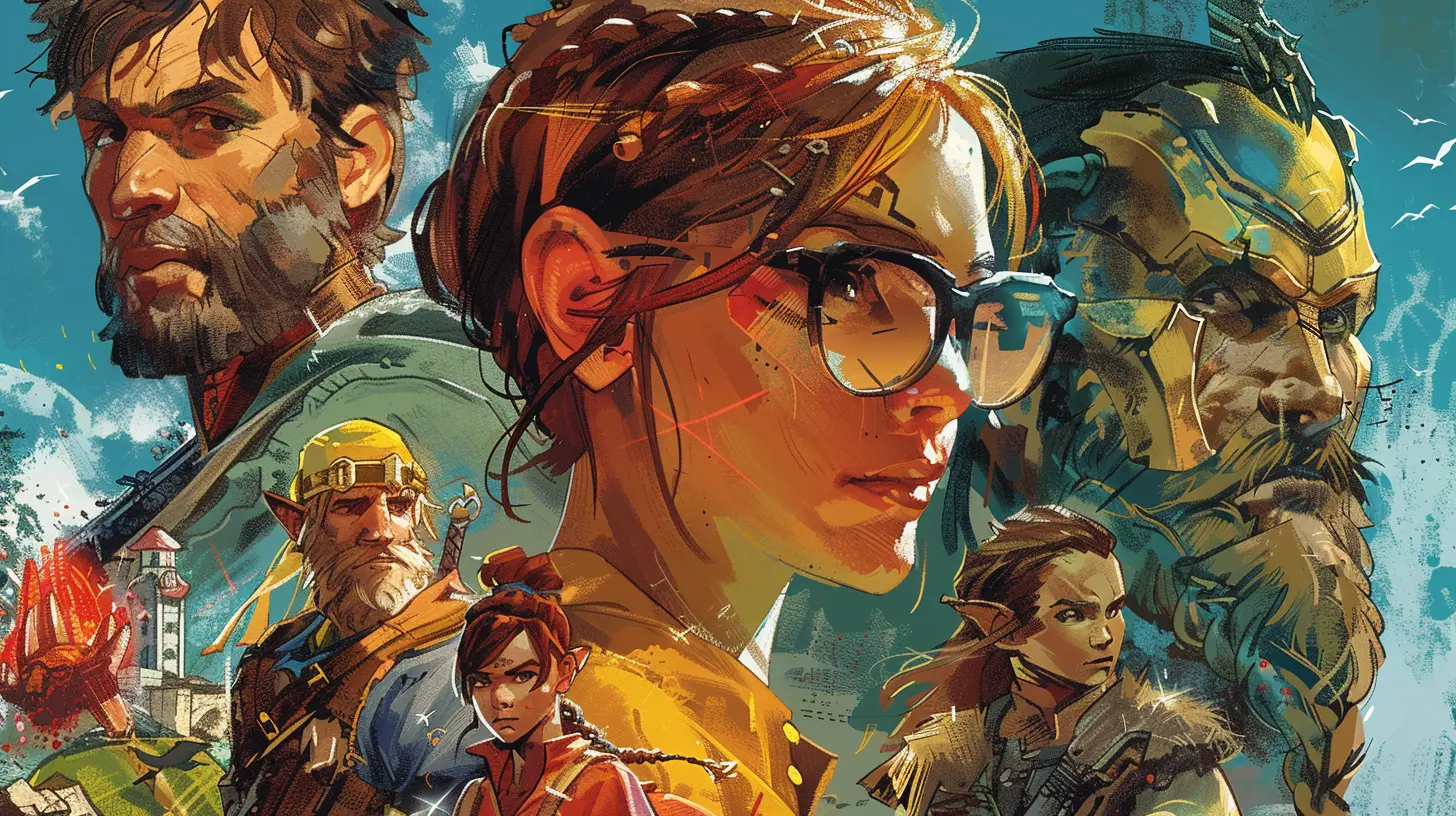
A Match Made in Gaming Heaven
Adventure games thrive on storytelling, and mythology provides the perfect canvas. Think about it. Most myths already have all the key ingredients: a reluctant hero, a daunting quest, and stakes as high as Mount Olympus. Developers don’t need to reinvent the wheel—they just need to tweak it.Games like God of War (2018) show how mythology can be reimagined to fit a modern narrative. Instead of retelling Norse myths word for word, the game creates its own rich, compelling story using those myths as a foundation. The result? A journey that feels fresh yet familiar, engaging players with its emotional depth and mythical grandeur.
Blurring the Lines Between Fact and Fiction
One of the coolest things about mythology in games is how it blurs the line between reality and fantasy. Take Assassin’s Creed Odyssey as an example. The game plunges you into ancient Greece, where gods and myths coexist with historical events. One moment, you’re exploring Athens; the next, you’re face-to-face with Medusa.This mix of myth and history keeps players guessing. Is this just a legend, or was there a grain of truth to it? By walking this tightrope, adventure games keep us on our toes, challenging what we think we know about the world. 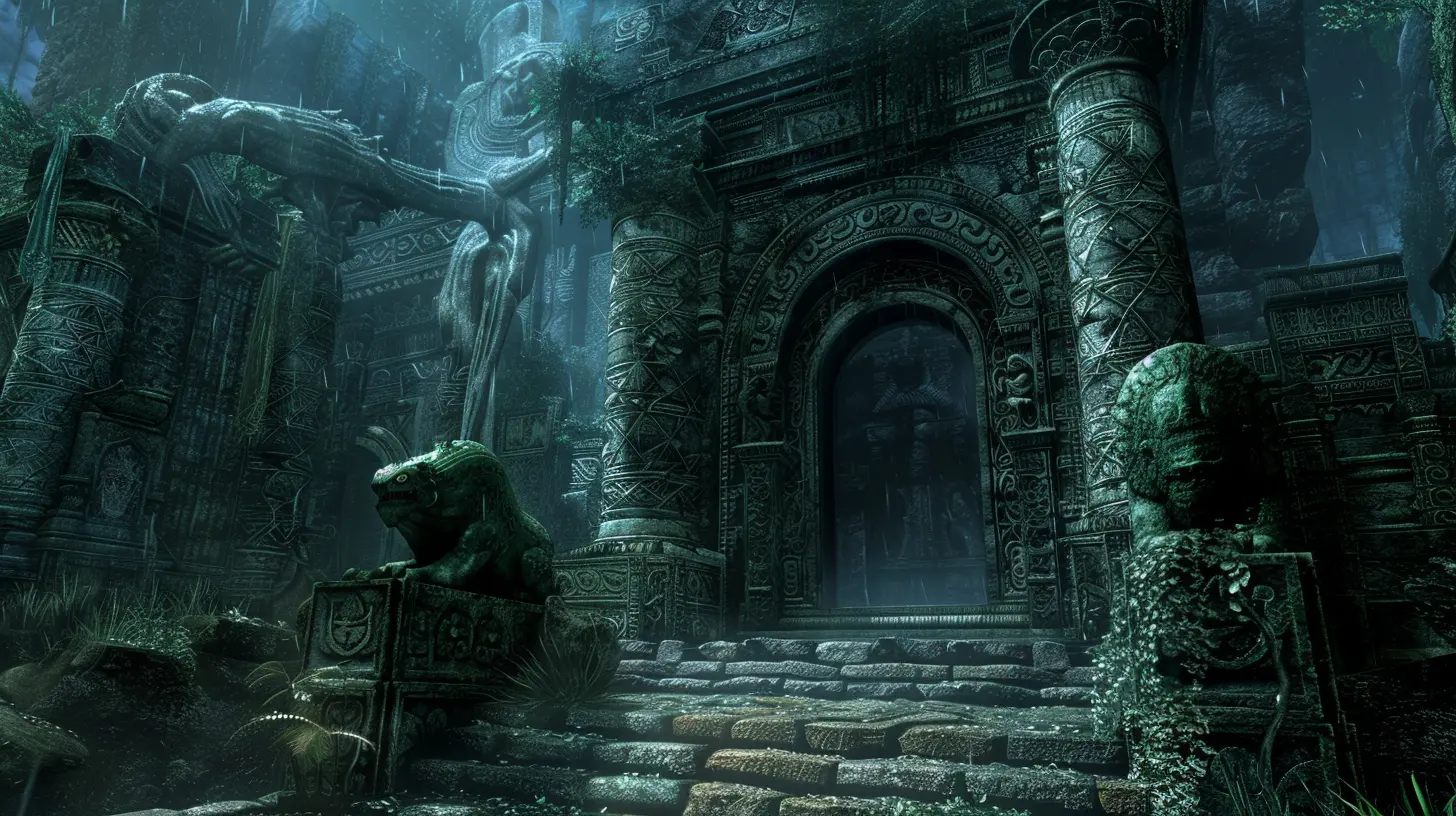
Folklore: The Unsung Hero of Game Storylines
While mythology often gets the spotlight, folklore deserves some love too. Folklore tends to focus on local tales and traditions, offering a more grounded and intimate form of storytelling. You know, the kind of stories your grandparents might have whispered to you as a kid—equal parts fascinating and terrifying.Games like The Witcher 3: Wild Hunt excel at weaving folklore into their narratives. Drawing heavily from Slavic folklore, the game immerses players in a world teeming with monsters, curses, and superstitions. From battling the eerie Leshen to deciding the fate of a botchling, these encounters feel personal and rooted in cultural history.
And here’s the thing: folklore makes the world feel alive. It’s not just about the main story; it’s about the little details that add depth. The creepy tales told by NPCs, the run-down villages with ghost stories, the strange rituals you stumble upon—it all adds layers of authenticity and intrigue. 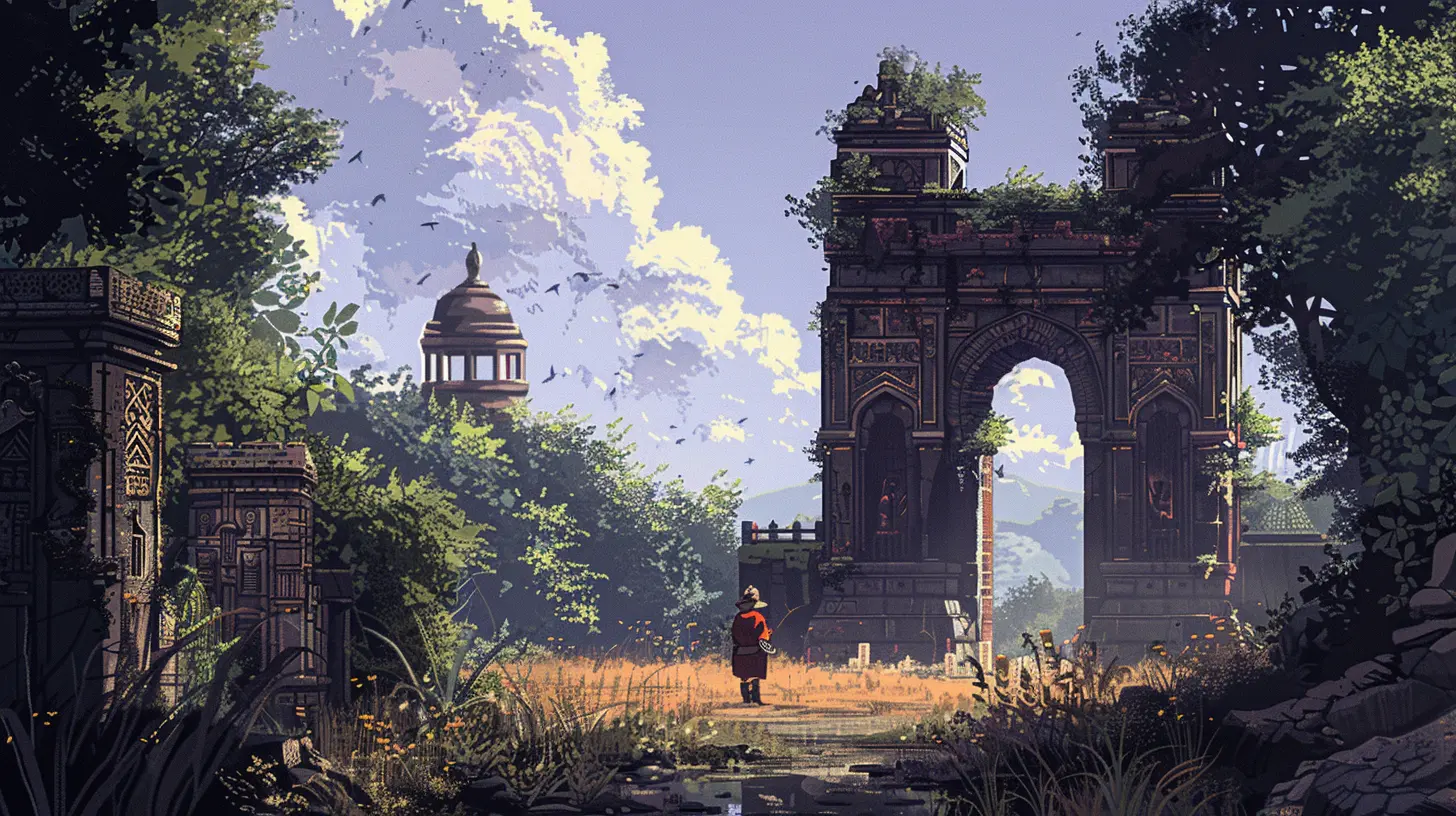
The Appeal to Players
Why are we so captivated by these stories? For one, they make us feel like part of something bigger. Myths and folklore tap into universal themes—like love, loss, betrayal, and redemption—that everyone can relate to on some level.But there’s also the element of escapism. Let’s face it: modern life can be dull, and who doesn’t want to step into a world brimming with gods, monsters, and ancient secrets? Adventure games give us that chance, letting us play the hero in a story that’s as old as time itself.
The Role of Mysteries and Puzzles
Another reason mythology and folklore work so well in games is their inherent sense of mystery. Myths rarely spell everything out—they leave gaps, questions, and grey areas. And you know what? That’s perfect for adventure games, which thrive on puzzles and exploration.Whether it’s deciphering an ancient rune or piecing together a fragmented legend, players love the challenge of uncovering secrets. Games like Tomb Raider and Uncharted utilize this to great effect, making you feel like a modern-day archaeologist, uncovering forgotten truths.
The Responsibility of Representation
Okay, let’s shift gears for a sec. While it’s awesome to see mythology and folklore in games, there’s also a responsibility that comes with it. These aren’t just random stories—they’re part of someone’s cultural heritage.That’s why representation matters. Developers need to do their homework, ensuring they portray these myths and legends respectfully and accurately. Sure, creative liberties are fine, but there’s a fine line between adaptation and misrepresentation.
Thankfully, many developers are stepping up to the plate. Games like Okami, which draws heavily from Japanese mythology, honor the source material while adding their own unique twist. It’s a balance that respects the past while embracing innovation.
When It Goes Wrong
Of course, not every game gets it right. Sometimes, myths are oversimplified or stripped of their cultural context, turning them into little more than a gimmick. This not only undermines the richness of the source material but can also alienate players who feel a deep connection to those stories.So, how can developers avoid these pitfalls? Simple: listen to the communities they’re representing. Consulting with cultural experts, historians, and even local storytellers can go a long way in creating an authentic and respectful experience.
The Future of Mythology and Folklore in Games
As technology advances, the possibilities for integrating mythology and folklore into games are endless. Imagine VR games where you can walk through the halls of Valhalla or AI-driven narratives that adapt myths based on your choices. The future is as exciting as it is limitless.But one thing’s for sure: mythology and folklore aren’t going anywhere. These stories have been with us for thousands of years, and they’ll continue to shape the way we tell—and play—stories for generations to come.
Closing Thoughts
Mythology and folklore are the lifeblood of adventure game storylines. They add depth, mystery, and a sense of timeless wonder that pulls players in and refuses to let go. Whether it’s battling gods in a Norse epic or solving riddles rooted in ancient legends, these elements remind us why we fell in love with adventure games in the first place.So, the next time you’re uncovering a mythical artifact or facing off against an ancient beast, take a moment to appreciate the rich tapestry of stories that made it all possible. After all, myths may be old, but in the world of gaming, they’re more alive than ever.
all images in this post were generated using AI tools
Category:
Adventure GamesAuthor:

Leif Coleman
Discussion
rate this article
11 comments
Naomi White
Fascinating intersection of culture and gameplay!
April 3, 2025 at 2:41 PM

Leif Coleman
Thank you! I'm glad you found the blend of culture and gameplay intriguing. It's a vital aspect of enriching storytelling in games!
Faye McGrath
This article brilliantly highlights how mythology and folklore enrich game narratives. By weaving cultural tales into gameplay, developers not only enhance storytelling but also deepen player engagement and connection. Excited to see more games embrace these rich traditions!
February 11, 2025 at 4:03 PM

Leif Coleman
Thank you for your kind words! I'm glad you enjoyed the article and see the potential for mythology and folklore to elevate gaming narratives. Exciting times ahead!
Clover Parker
This article dives into the fascinating intersection of mythology and gaming! I love how these rich narratives can deepen player engagement. I'm curious to see which lesser-known folklore elements developers might explore next—there's a whole world of stories to uncover!
January 31, 2025 at 5:01 PM

Leif Coleman
Thank you! I’m glad you enjoyed the article. There’s indeed a treasure trove of folklore waiting to be explored in gaming!
Oriana Tucker
I really appreciated this article! It’s fascinating how mythology and folklore enrich game narratives, bringing depth and cultural significance. I love discovering these stories woven into gameplay. Thank you for shedding light on this captivating aspect of adventure games!
January 22, 2025 at 5:07 PM

Leif Coleman
Thank you for your kind words! I'm glad you enjoyed the article and found the connection between mythology and game narratives so captivating.
Avianna Allen
This article beautifully highlights how adventure games weave mythology and folklore into compelling narratives. By integrating cultural elements, these games not only entertain but also educate players about diverse traditions. It’s fascinating to see how ancient stories can spark engaging gameplay and deepen the player's connection to the storyline.
January 14, 2025 at 5:33 PM

Leif Coleman
Thank you for your insightful comment! I’m glad you appreciate how adventure games can blend entertainment with cultural education through mythology and folklore. It truly enriches the player experience!
Adrian Rosales
Integrating mythology and folklore enriches adventure game narratives, offering players deeper connections to culture and history while enhancing the gameplay experience.
January 10, 2025 at 5:56 PM

Leif Coleman
Absolutely! Integrating mythology and folklore not only deepens player engagement but also creates a rich tapestry of cultural storytelling that enhances the overall adventure experience.
Leah McNeal
This article highlights the rich integration of mythology and folklore, enhancing narrative depth in adventure games significantly.
January 4, 2025 at 5:45 PM

Leif Coleman
Thank you! I'm glad you enjoyed the article and found the integration of mythology and folklore so impactful in adventure games.
Jemima Elliott
This article highlights the rich interplay between mythology and gameplay, enhancing narrative depth and player engagement effectively.
December 30, 2024 at 3:39 PM

Leif Coleman
Thank you! I'm glad you found the connection between mythology and gameplay enriching. It was a pleasure to explore how these elements deepen narratives and engage players.
Calyx McAllister
This article insightfully highlights how mythology enriches adventure games, enhancing storytelling and player engagement. Great read!
December 23, 2024 at 5:51 PM

Leif Coleman
Thank you for your kind words! I'm glad you found the connection between mythology and adventure games insightful.
Fable Lewis
Great article! I love how you highlighted the rich tapestry of mythology and folklore in adventure games. It’s fascinating to see how these narratives can deepen the player's experience. I’d love to hear more about specific games that effectively incorporate these elements in future posts!
December 12, 2024 at 3:41 PM

Leif Coleman
Thank you for your kind words! I’d love to share more specific game examples in future posts. Stay tuned!
Aubrey McKibben
Great article! It's fascinating how adventure games weave mythology and folklore into their narratives, enriching the player's experience. Excited to see how these themes evolve in future titles! Keep up the fantastic work!
December 11, 2024 at 3:38 AM

Leif Coleman
Thank you for your kind words! I'm glad you enjoyed the article and share the excitement for the future of adventure games. Stay tuned for more explorations!
MORE POSTS

The Benefits of Playing Modded Games Over Vanilla Versions

Building Your Own Legacy in Open World Games: A Passion Project

Upgrading to a Gaming Router: Does It Really Improve Online Play?
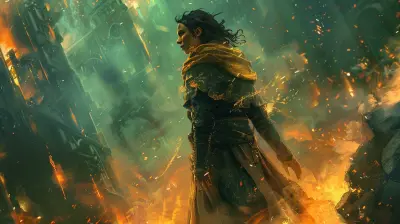
How Character Development Enhances Adventure Games

The Most Immersive Storylines in Role-Playing Games

How to Master the Art of Passing in Football Video Games

How to Choose the Best Gaming Headset for Immersive Play

Breaking Barriers: Games That Won Awards for Their Social Impact